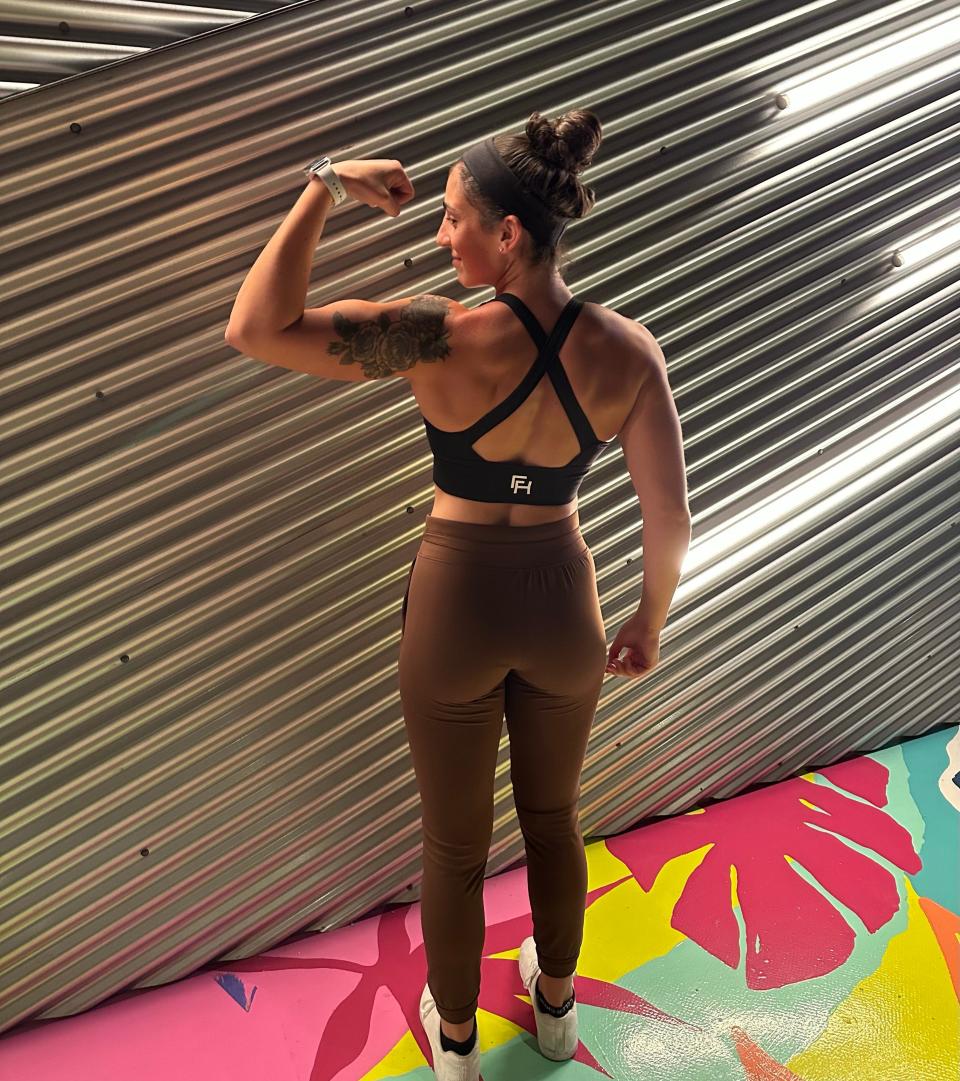Fitness influencers say mental health as important as physical health
Stretch, snap, post. Run, record, post. Weightlift, log, post.
Fitness influencers are constantly sharing their fitness routines and physiques online – and in the process, opening themselves up to hateful comments.
Especially on social media platforms like Instagram and TikTok, where the focus on image can be flooded with toxic comparisons and negative feedback on people’s looks, where does mental health fit in?
Emily Robinson, who shares gym tips on her Instagram @emilyrobinson.fit and is nominated for emerging fitness influencer of the year at this year’s American Influencer Awards, says every influencer deals with negative comments online, but body-focused comments are especially common within the fitness space.
“This is especially true with female fitness influencers. I've dealt with a wide variety of comments from both men and women such as ‘she doesn't even have muscle definition. Why should I listen to her?’ or ‘Wow she has to be on steroids.’ They'll even go as far as to assume your gender, 'That has to be a guy' or 'I'm not sure if this is a guy or girl' simply because you have more muscle mass than the average Covergirl model.”
Comments like this, she says, can be a huge hit to your mental health.

Taking care of mental health is a priority
The larger the following, the more negative comments received, say some influencers.
Practicing good mental health habits such as meditation, journaling and gratitude help some influencers deal with online negativity.
Physical and mental health are connected and you cannot ignore your mental health.
How influencers navigate online hate
Melissa Dowd, a therapist at virtual mental health and primary care company PlushCare, explains social media can be great for connecting with friends, family and your community – however, it has a negative side too.
“(Social media) can leave users, especially those with large followings, vulnerable to judgments and negative comments from the public. In a world of filters, photoshop, glam teams, cosmetic procedures and more, the pressure to appear perfect and fit a narrow beauty standard in the public eye is higher than ever,” she says. “This can be especially difficult for influencers in the fitness space where the outside viewer’s focus is on the body, and posts on platforms like Instagram often attract negative comments. These negative comments, especially around body image, can trigger anxiety, sadness, decreased feelings of self-worth, disordered eating or exercise and more.”
In Robinson’s experience, with more success came more criticism.
“I've noticed that the more reach your posts get, the more negative comments you receive generally,” she says. “At first, I was really offended by any type of negative feedback I would receive on my posts. I was scared to be criticized, but after realizing that my posts were performing well and hitting my target audience, I started to understand that negative comments are just part of the job.”
Recognizing the connection between mental and physical health
How does Robinson navigate it all?
First, she recognizes that mental health is “extremely important when it comes to health and fitness overall.”
“It can make or break you when it comes to achieving a goal you have,” she says.
Dowd agrees, adding just as fitness influencers spend time in the gym each day, it’s critical to keep your mind fit.
For mental health, she suggests, your workout might be a combination of practices like...
Meditation
Gratitude
Journaling
Spending meaningful time with loved ones
Being present
Doing things you enjoy
Self-care practices
“It’s also important to remember that wellness is based on both physical and mental health and the two are interconnected," she says. "For example, if a fitness influencer is suffering from depression, they might start missing workouts or engage in emotional or disordered eating behaviors.”
The bottom line: “Taking care of your mental health is just as important as your physical health,” Dowd says.
To keep her mental health in check, Robinson reminds herself not to compare herself to others.
“When it comes to scrolling through social media, the photos you see of others are generally in perfect lighting, with the perfect pose and they aren't reality,” she says.
She also knows negative comments often have more to do with the commenter than herself.
“I remind myself that negativity is generally a result of the other person's insecurities and actually has nothing to do with me.”
Deleting the negative, focusing on the positive
She also incorporates daily practices that support her mental health, including positive self-talk.
“When you receive a lot of negative comments or feedback, sometimes it can be hard to think, ‘forget them, I am awesome,’ “ she says. “As stupid as it sounds, it helps to look at yourself in the mirror and read positive affirmations to yourself. If you don't want to do that, you can also do them internally in your head.”
But if it still becomes too much, Robinson isn’t afraid to take a break or hit delete.
“I started to delete (negative comments) because other people will start commenting on the thread and it turns into a whole thing when it doesn't need to be,” she says, but tries to keep her perspective in check too. “The negative comments really don't mean much in the big picture when you have so many more people supporting you…Focus on the positives.”
This article originally appeared on USA TODAY: Fitness influencers ignore online haters